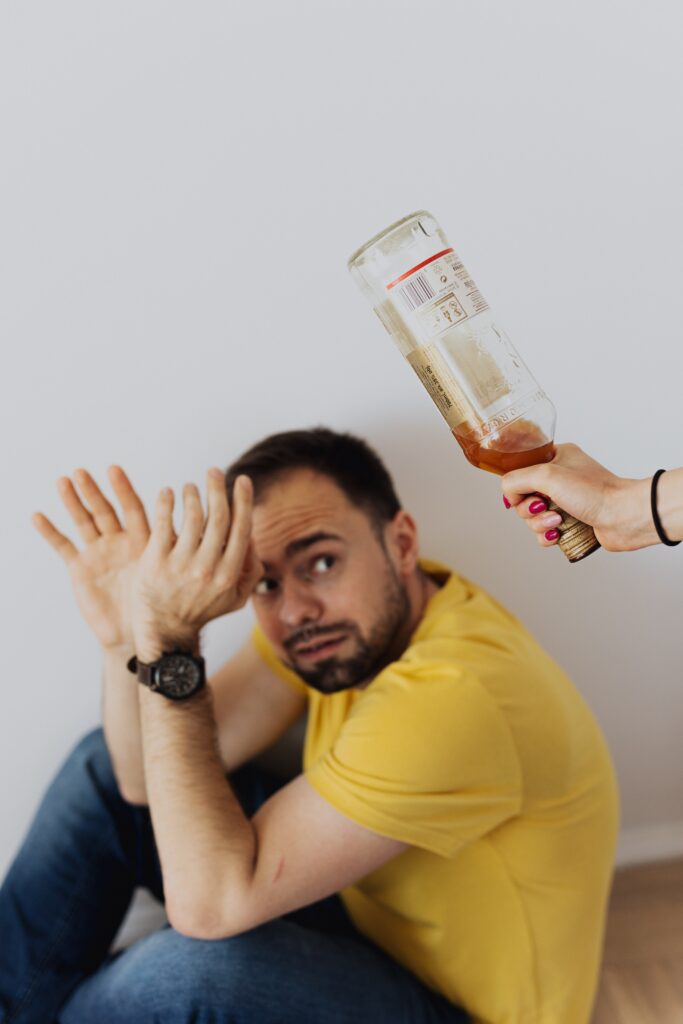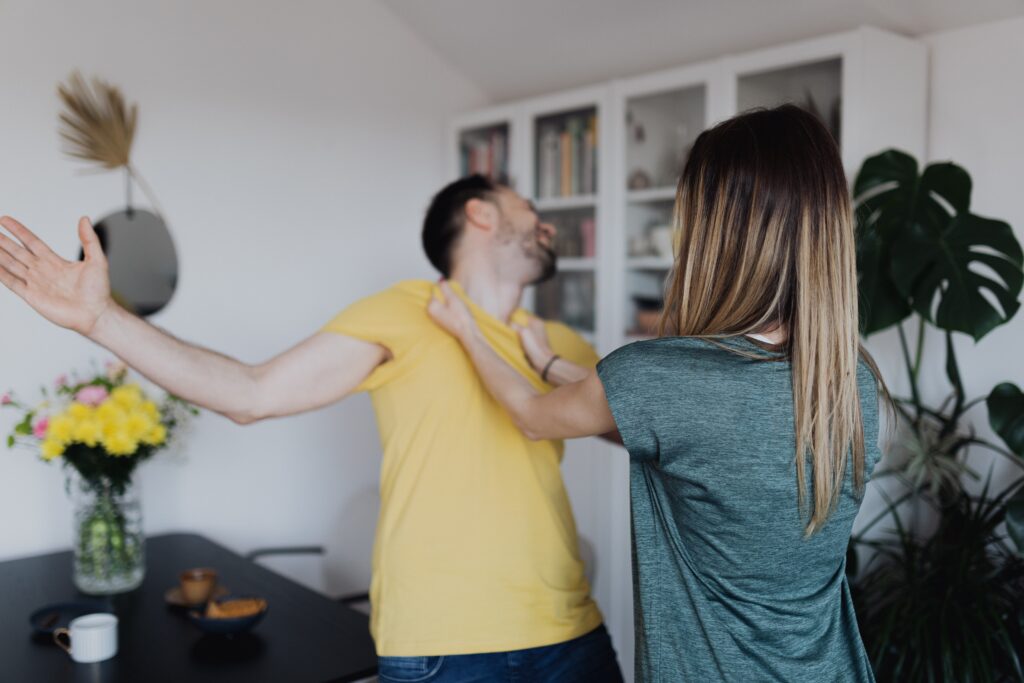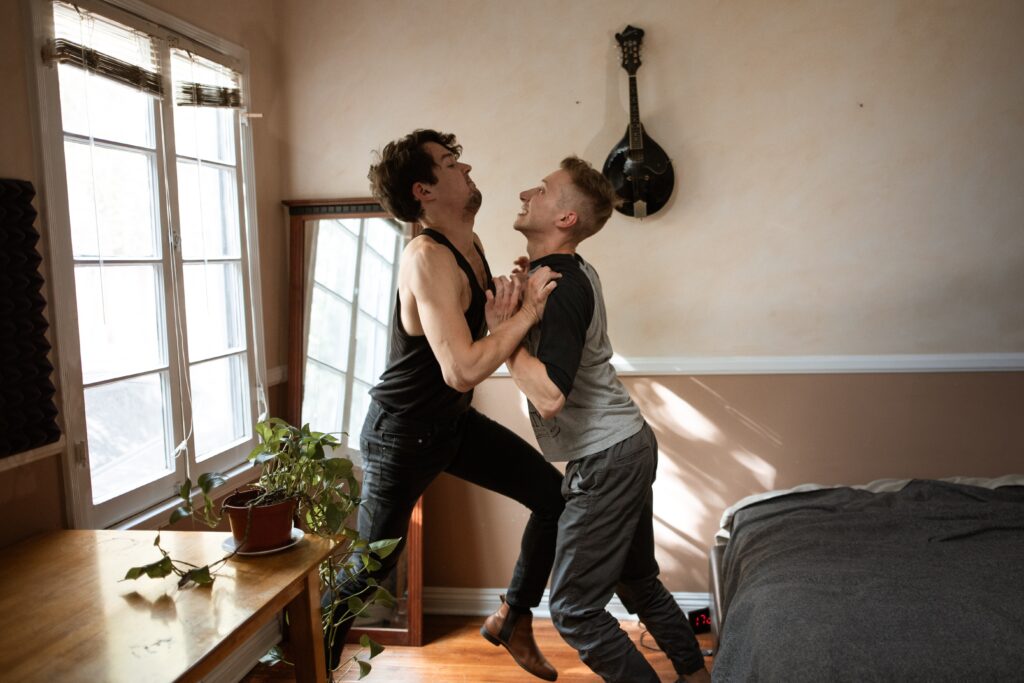A Man° Can Be a Victim of Abuse and Domestic Violence!

Hey, Psych2Goers! Welcome back. We’d like to take a moment to place a ***TRIGGER WARNING*** on today’s article. As the title mentions, we’re going to be talking about abuse and domestic violence (DV). If these topics are triggering or make you feel any level of discomfort, please feel free to skip this article!
° – We’ll also be discussing gender. Please also note that if the terms “male” and/or “female” or the pronouns “he/his” and “she/her” are used, we are referencing all individuals who identify as male or female.
If you haven’t heard (no pun intended), there is a huge trial being had right now between Johnny Depp and his ex-wife, Amber Heard. (We just finished Week 3 of potentially 5!) Summary: Depp is suing Heard for defamation of his character stemming from an op-ed in the Washington Post written by Heard. In the article, Heard makes claims that she is “…a public figure representing domestic abuse…” (Heard, 2018). This op-ed and and statements were referencing her marriage with Depp, but did not directly drop his name. In this trial, we are seeing evidence showing that Amber may be responsible for the abuse and domestic violence, not a victim as she claims.
EDIT: On Wednesday, May 4th, Dr. Dawn Hughes testified as an expert witness for the defense (Ms. Heard). In her testimony, when referencing a victim of domestic violence, she typically used the pronouns “she°” and “her°”. When she described an abuser, she primarily used the pronouns “he°” and “him°”. During cross-examination, Wayne Dennison (Mr. Depp’s lawyer) brought this fact up. Dr. Hughes responded that she was speaking specifically to the situation at hand. Because Depp is a male and is whom she believes to be the abuser and Amber is female and is believed to be the victim, this is why she spoke this way. Personally, I went back and rewatched her testimony. I’m not sure, but to me, it sounded like she was speaking generally and assuming the genders of the hypothetical abuser and victim. What do you think? Let us know down below!
Since the #MeToo movement started in 2006, it has predominantly been run, represented, and tagged by females°. Whenever there is domestic violence or abuse concern raised, we, as a society, usually tend to side with the female° party. We completely forget that men° can be victims of abuse and domestic violence, too! Yes. I’ll say it again. Men° can be victims of abuse and domestic violence, too! Let’s take a look at some common misconceptions about male° victims of any type of abuse or DV.

MYTH #1: The statistics show that there are more female° victims of abuse and DV than male° victims.
In 2011, Carmo, Grams, and Magalhaes did a study on men° as victims of intimate partner violence. They found that the number of reported DV cases that represented male° victims made up roughly 11.5% of all reported cases. Notice the key word? Reported. In this study, they also found that two common reasons for abuse going unreported, and why the number is so low, is due to men° want hide the fact that this is happening. This may be due to shame of admitting it’s happening, or (more commonly) they may be afraid of the backlash they can receive. Another reason men° may not report these occurrences may be due to them feeling the injury/damage wasn’t “enough” to warrant a report. In another study from 2012, Drijber, Reijnders, and Ceelen found that some men° didn’t report their abuse because they believed the police wouldn’t take them seriously or do anything about it. Just because the incident goes unreported doesn’t mean it didn’t happen.
It’s important to know the signs of abuse, especially when so many cases are going unreported. Check out Psych2Go’s videos such as 10 Red Flags of Abuse.

MYTH #2: You’re not a “real man°” if you can’t take it.
I don’t even know why this one is a thing. Let’s be very, very clear. No one, regardless of gender, should have to be able to “take” abuse. No one is deserving of abuse or disrespect of any kind, especially not from their significant other. When someone experiences an abusive event, the emotions that come from it are everywhere ranging from shame to fear to sadness to anger, and every single emotion in between. These are HUMAN emotions, not only-male-identifying or only-female-identifying emotions. When we, as a society, condemn feeling these emotions in men°, why would they want to or feel comfortable coming forward to reveal they are experiencing these feelings or abusive events?

MYTH #3: She° didn’t come at you for no reason.
Personally, I have a lot of issues with this one, so let’s break it down. First, this statement makes man°, the victim of domestic violence, the one at fault when wrong is being done to them. It suggests that whatever he° did made the other person hit you. He° can’t be a victim if he’s° the reason it happened in the first place. Secondly, this stereotype insinuates that if someone does something “bad” enough, it’s justified for them to respond with physical abuse. Nope. It all circles back to the same idea. I don’t care what he° did. Just like we tell kindergarteners, we keep our hands to ourselves unless there’s consent. I don’t know about you, but I don’t know many who will consent to malicious abuse. Violence should never be anyone’s response in a conflict.

MYTH #4: It’s not abuse if she° doesn’t leave a mark on you.
We left the most appalling for last. There are some unenlightened individuals that believe all abuse involves some type of physical act. Some will even go a step further to state that a physical act is alright as long as a mark, bruise, cut, etc. isn’t left. This is simply not correct. Abuse can be physical, sexual, emotional, verbal, or mental, and it can take many forms. Yes, it can be a slap or throwing a glass bottle at someone. It can also be gaslighting them and saying things happened when they didn’t to make them feel nuts. It can be saying derogatory things to your partner to lower their self-esteem. Abuse may not leave a mark that can be seen, but it will always leave a mark on the person’s mind and heart.
Abuse and domestic violence aren’t singular to one gender or party. To my Kings out there, we see you. We know you are silently going through unspeakable events, some worse than anything we’ve heard before. If you or a loved one think you are in an abusive relationship, tell someone, ask for help, or reach out to a trusted mental health professional. We believe you, and we’re here to listen. As always, keep your eye on Psi for more Psych2Go content.
The references mentioned in and used to compose this article are listed below.
2018, 7th F. (2018, March 5). Stereotypes & myths about abuse of men. Rotherham Rise. Retrieved April 29, 2022, from https://rotherhamrise.org.uk/stereotypes-myths-about-abuse-of-men/
Carmo, R., Grams, A., & Magalhães, T. (2011). Men as victims of intimate partner violence. Journal of Forensic and Legal Medicine, 18(8), 355–359. https://doi.org/10.1016/j.jflm.2011.07.006
Drijber, B.C., Reijnders, U.J.L. & Ceelen, M. Male Victims of Domestic Violence. J Fam Viol 28, 173–178 (2013). https://doi.org/10.1007/s10896-012-9482-9
Gill, G., & Rahman-Jones, I. (2020, July 9). Me too founder Tarana Burke: Movement is not over. BBC News. Retrieved April 29, 2022, from https://www.bbc.com/news/newsbeat-53269751#:~:text=Tarana%20began%20using%20the%20phrase,Harvey%20Weinstein%20of%20sexual%20assault.
Heard, A. (2018, December 19). Opinion | amber heard: I spoke up against sexual violence – and faced our culture’s wrath. that has to change. The Washington Post. Retrieved April 29, 2022, from https://www.washingtonpost.com/opinions/ive-seen-how-institutions-protect-men-accused-of-abuse-heres-what-we-can-do/2018/12/18/71fd876a-02ed-11e9-b5df-5d3874f1ac36_story.html
Male Survivors Partnership. (2020, January 10). Myths and facts. MSP – The Male Survivors Partnership. Retrieved April 29, 2022, from https://malesurvivor.co.uk/support-for-male-survivors/myths-and-facts/
National Domestic Violence Hotline. (n.d.). Myths around men experiencing abuse. The Hotline. Retrieved April 29, 2022, from https://www.thehotline.org/resources/myths-around-men-experiencing-abuse/




Responses